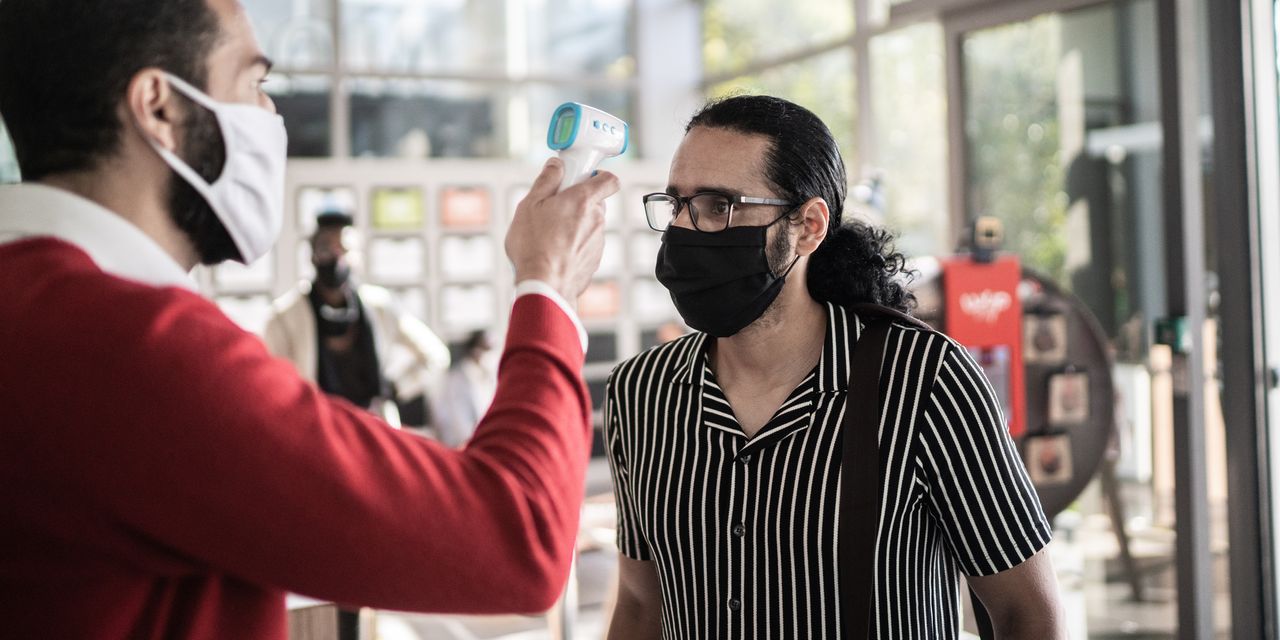
How prepared are companies for a smooth transition back to in-person work? Some are doing better than others.
Just one in three return-to-work decision makers say their company is poised to negotiate a successful return to the workplace, according to a new survey conducted as the U.S. mass-vaccination effort forges ahead.
The independent media organization Reset Work polled 55 human-resources leaders and “return-to-workplace decision makers” in industries including internet and technology, financial services, retail and e-commerce, consumer products, nonprofit, and professional services.
“Other surveys have revealed what employees are thinking about
returning to offices; for this survey, we wanted to focus on the actual decision makers, and we learned that returning to work is likely to be unpredictable and potentially chaotic,” the report said.
“ Hybrid arrangements that mix in-office and remote work are the clear frontrunner so far. ”
Among the findings: Some 27% of companies haven’t yet committed to a specific arrangement, but hybrid arrangements that mix in-office and remote work are the clear frontrunner so far (63%). Just 6% of companies plan to be fully remote, and 4% plan to return to the office full-time.
Seven in 10 respondents said they expected employees to work in the office two or three days a week on average, according to the survey, which was conducted March 11 to April 28. And among companies that plan to return to the physical workplace in some capacity, nearly three-quarters anticipate employees returning by the end of September.
That said, just 33% of decision makers believe their organization is prepared and has the necessary resources to successfully navigate a return to work; only half expressed confidence in their company’s workplace-return blueprint.
“ Support and training for managers ‘to lead through the challenges of flexible, hybrid workplaces’ was the No. 1 concern. ”
A number of large companies in industries that make telework feasible have already laid out their return-to-work plans, hybrid and otherwise: The CEO of Citigroup C, +0.40%, for example, announced in March that most employees would be designated hybrid workers who come in at least three days a week.
Microsoft MSFT, +1.09% said it would begin its shift to hybrid work in late March.
Google GOOG, +0.73%, which plans to encourage employee vaccination without requiring it, is experimenting with its office design to meet employees’ post-pandemic workplace needs, the New York Times reported last week.
And Spotify SPOT, +1.00% said in February that its workers would be able to work “full time from home, from the office, or a combination of the two” starting in the summer.
“ A number of large companies have already laid out their return-to-work plans, hybrid and otherwise. ”
What are decision makers most concerned about with respect to returning to work?
However, support and training for managers “to lead through the challenges of flexible, hybrid workplaces” was the No. 1 concern (41%). Concerns also included rethinking ways of working (25%), culture (20%) and employee experience (20%).
Perhaps surprisingly, COVID-19 exposure landed near the bottom of the list of concerns (16%).
As for the prospect of mandating coronavirus vaccinations for employees — generally within an employer’s rights, according to the U.S. Equal Employment Opportunity Commission — nearly half of decision makers say they haven’t made a decision yet.
Thirty-nine percent say they won’t require vaccination, while 8% say they will. Another 6% say they won’t mandate vaccination, but will only allow inoculated workers to return to the physical office.
As of Tuesday, nearly 32% of the U.S. population had been fully vaccinated against COVID-19, and more than 44% had received at least one dose, according to the Centers for Disease Control and Prevention.
Majorities of these HR leaders and decision makers also said their organizations planned to make or expand investments in diversity, equity and inclusion (65%) or relationship building (55%) in support of their return-to-the-workplace strategy. Many are also evaluating recruiting (74%) and employee retention (57%) as part of their plan.







